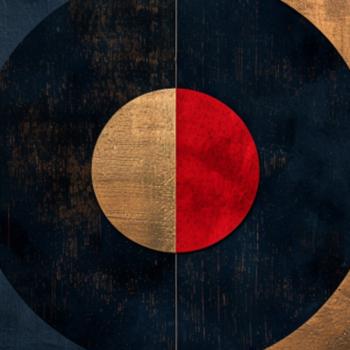Now Featured in the Patheos Book Club
Letters to an Atheist
Wrestling with Faith
By Peter Kreeft
Book Excerpt
Dear Michael,
No, I'm not impatient and disappointed that you want "to be sure our starting point and motives are right before we begin." I quite agree that "impatience and haste is the cause of most of the mistakes most of us make in most areas of life, from science to driving a car."
You demand of me more clarification of what I mean by "the motive of seeking the truth whatever it might be." I appreciate that demand and the fact that you call it a "demand," not just an "ideal," and I shall try to meet that demand. You call yourself a "troublemaker" for that, apologetically; but I think you should not be apologetic at all, because philosophers need that kind of "troublemaker." That's why I'd want to include at least one tough-minded, "troublemaking" Socrates or G. E. Moore–type philosopher in every philosophy department.
What I mean by the motive of truth seeking is more than a mere "motive." It has to be a passion. It has to be unqualified, or "fanatical." If you own a copy of Pascal's Pense´es, read the section "Against Indifference" and perhaps also the section on "Diversion." You don't have to like his famous "wager" to appreciate those two sections. And, to anticipate your question, I don't plan to use his "wager" as an argument for God, because it doesn't mean to prove that God exists at all.
(Pascal's "wager," in case you don't know it, is not an attempt to prove that God exists, but that it's reasonable to "bet" that He does because if you lose, you lose nothing, and if you win, you gain everything (Heaven). Actually, Pascal's version is much less crude and more subtle than that summary, and I'd recommend reading his Pense´es in any case as a literary masterpiece, even if you find its arguments less than convincing.)
Perhaps I can make my point about the passion for objective truth clear by making it radical. You have given your life to science, as I have given my life to philosophy. We both have given up our lives to the search for truth, in different though related fields. I am arguing with you about atheism for a number of reasons: (1) first of all, for the sake of truth, for the sake of our both coming to discover more truth, whatever and wherever it is, because that's always good for everybody involved, (2) and for friendship, both with you and with Martha, (3) and for delight and profit for me, and (4) for delight and profit for you. This last point refers both to the delight in the process of arguing and also to the delight in the truth at the end of the process, if it succeeds.
And of course I hope that I may be able to persuade you about God. Why else would one argue, except to persuade the other to accept something one already believes to be true?
On this last point, I think that science itself may save you, may convert you, may bring you to God. I don't mean any particular scientific argument, like the big bang or the anthropic principle (though that's possible too, and it has happened to a number of scientists and philosophers, like Antony Flew). I mean the essence of science, the essence of the scientific method, which is the total, passionate, open-minded, unprejudiced search for objective truth, whatever it is and wherever it is. I mean the toughmindedness, the "will to truth" that Nietzsche sneered at, the nonnegotiable demand on yourself to follow the evidence and the argument wherever it leads.
If the God I believe in really exists -- the God of the Bible, the God of Christianity -- then He will honor that search for truth. "All who seek, find," Christ promised. He did not promise how long it would take (God's a lover, not an airline) or how twisted and obscure the path would be, but he promised that nothing could keep you from finding what you want if what you want is truth, truth with a capital T, ultimate truth, truth about God.
I think the only thing that can keep a seeker from finding it in the end is pride. I mean not just vanity but "my will be done" instead of "truth be done," the will to my own comfort or convenience or prestige or ease or autonomy or anything else at the expense of truth.
Even freedom. For true freedom comes only from truth: lies always enslave you. "The truth will make you free." And freedom is not just from truth but also for truth, not just for itself. Chesterton says an open mind is essential for the same reason an open mouth is essential: so that it can chomp shut on something solid to eat. So freedom is for truth as well as from truth. It's subordinate to truth.
So if you reject God and embrace atheism because you sincerely believe God is not true and atheism is, then you do not reject God, for God is truth.




